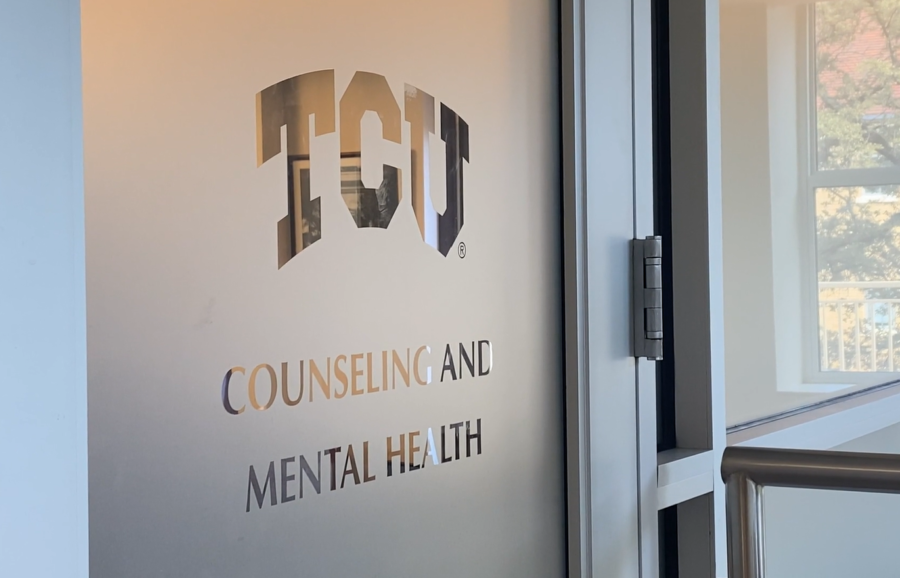For years, international students at TCU have traveled over oceans, through time zones and into a variety of climates to experience American culture. For recent generations of students, this daunting transition has been made easier with a simple Wi-Fi connection.
Jacqueline Antwi-Danso left her home in Ghana to study astronomy and physics at TCU. As a first-year student, she said she used the Internet and social media to stay connected to home.
News from GhanaWeb and Facebook updates from family and friends allowed the familiarity of her home to travel with her.
Along with preserving a lifeline to home, the online world also aided her cross-cultural understanding. The pool of information allows her to decode cultural phenomena such as “twerking,” she said.
“I’m getting a more complete understanding of what the American culture is,” Antwi-Danso said.
Graduate accounting student Ben Ji said the way people use social media in America has given him insight into how people think, interact and express themselves.
Compared to its Chinese counterpart, a website known as Renren, Americans post more personal information on Facebook, he said. The Chinese website is used mostly to comment on information about the community, a reflection of cultural differences.
“Internet has been so helpful for me to learn things and help me solve problems that I had no idea how to solve,” he said. “How things work is so different and I had to learn so many new things, and the Internet has been very helpful with that.”
For many international students, the Internet is a vital resource.
However, the ease of access to knowledge and connections may come at the price of truly experiencing a new environment.
Kelly Holland, interim director of the Office of Study Abroad at Eastern Illinois University, addressed this concern in her blog.
“Instead of seeking support from those around you in times of need, it is so much easier to reach back to where you came from, and the comforts of home,” she wrote.
When sophomore mechanical engineering major Ethan Phan came to the university from Vietnam last year, he said he struggled with making new friends at first and turned to his online support system instead of reaching out to people around him. Ji said he also found the allure of lingering online too tempting during his first few years in America.
“I didn’t have a real life except for my life online,” he said.
Both Ji and Phan said they have learned to balance their use and have made significant changes in how much time they spend on the Internet. For Ji, this meant putting in the few hours for online coursework and Skype chats to home, but skipping out on the hours spent on Facebook.
When sophomore studio art major Michelle Bonilla came to the United States from Ecuador, she said she encountered more social media platforms.
“I’ve never really been a technology person, but now I’m trying to get into it just to not get homesick and it has really helped,” she said.
Despite increasing the amount of time she spends online, she said she has also become involved in several organizations on campus.
The temptation to spend more time online may seem greater while students are away from home, Director of International Student Services John Singleton said, but the problem is not unique to international students. The increase in digital media has, however, made his office rethink their approach to communicating with students.
In the 14 years Singleton has been with the Office of International Student Services, he said he has witnessed a “plate tectonic shift in how students arrive here and how they are received.”
In the past, international students had more in common with the office’s staff of fellow travelers, but he said these days closer bonds are shared within their own generation of digital natives.
The sense of being completely “foreign” has become foreign in itself, as international students arrive with more access to knowledge of their new culture and connections to back home than ever before, Singleton said.
The “culture shock” their office is prepared to deal with has become less evident, he said. To accommodate the preferences of incoming students, they began moving their resources online. The office has posted pictures and contact information of students who can answer questions related to specific areas of campus. They also plan on implementing more pre departure interactions with students online into their changing orientation process.
Looking to search engines such as Google for answers can be both helpful and risky. When Daphne Gronloh came to Texas from the Netherlands, she said she was mislead by articles that described the state as a throwback to cowboy country.
She said that in contrast to her preconceived impression, she has found Texas to be very modern and technologically advanced. Because of the time difference and struggle of translating English during classes, she said she has not increased her Internet usage since arriving.
After spending the day translating in classes, Phan said he uses the Internet to find materials in Vietnamese to maintain his cultural ties. He said he truly appreciates the freedom he has in exploring the Internet in the United States, as the government in his home country blocks many websites.
A more globalized world has developed out of the variety of available perspectives and ease of connecting through the Internet. International students have felt the realities of this shift, and have continued to integrate social media and the Internet into their abroad experience.






